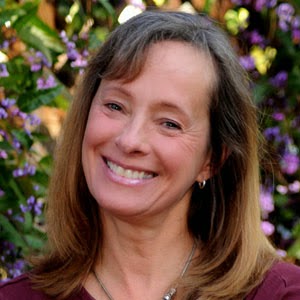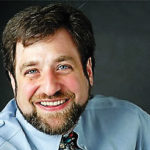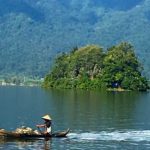Janet Fullwood, 48, has traveled in 60-odd countries and has been publishing travel stories and photos for 22 years, the first one being a newspaper story on camping and backpacking on Kauai. Since then, with a few breaks for extended periods of roaming the globe, she’s worked out a career — first at the Dallas Times Herald and since 1987 at The Sacramento Bee — that allows her to travel on someone else’s nickel and get paid for writing about it. Travel and writing are actually just a small part of her job, which involves producing a weekly newspaper travel section with writing from many sources. Janet says that perhaps her biggest accomplishment “is being able to do all this and balance having a family, too.” She’s the mother of two boys, ages 8 and 10. “Someday — if the day ever comes when I don’t have to count on that weekly paycheck — I’d like to break out of the newspaper genre to really let loose with the tales that can’t be told in a family newspaper,” she says. “I’ve also developed an interest in how tourism is affecting fragile cultures and environments, and would like to pursue that subject from an academic as well as journalistic perspective.”
How did you get started traveling?
I grew up in the flatlands of north central Texas and didn’t see the ocean until I was 10 or a mountain until I was 15. But I traveled every year with my family to visit relatives in the Midwest, and relished every minute of those long car trips. Other than that, the only traveling I did as a kid was purely vicarious: I collected stamps from around the world, which led me to the map to see where those countries were, which in turn led me to the encyclopedia to learn something about these far-away places. So I had an interest in geography early on. Also I read a lot of books set in foreign places. I was very much the bookworm as a kid. My first real trip didn’t come until college, when I went to Mexico for three weeks with one of my roommates. That trip so opened my eyes and invigorated my mind that I was ready to change my citizenship and move to Mexico right then. From that time on, right up until I had kids, all I ever saved money for was travel. I lived in shacks and worked three and more jobs at a time to put away enough money to travel for months at a time on $10 a day to wherever the wind blew me. I had a string of journalism jobs after college — all of which I quit within a year to travel until my money ran out, mostly in Mexico and Central America.
How did you get started writing?
I always made good grades in English classes, and didn’t find the written work difficult. I was on the staff of my high school newspaper, but remember it as more stressful than enjoyable. In college I started out studying art and music but after two years changed my major to journalism, which I figured was a more practical choice if I wanted to make a living. I picked j-school mostly because I liked reading and words, and had a good command of grammar. I was so shy while reporting my first stories for the college paper that I couldn’t bring myself to pick up the phone and call someone I didn’t know. It was pure torture. Twenty-odd years later the phone part is easy but the writing is still torture.
What do you consider your big “break” as a travel writer?
My college sweetheart worked for an airline, and we could fly free anywhere we wanted to go. I lived for those passes. My newspaper job only gave me five days(!) vacation a year, which didn’t hack it. So I quit and started flying here and there, traveling on a shoestring and trying to freelance the stories. The first travel stories I sold were about camping and backpacking in Hawaii. They were published first in the Dallas Times Herald. The travel editor there started giving me assignments, sending me on trips, became my mentor. When he left the paper I applied for his job and got it. I was travel editor there six years before coming to Sacramento. (I took the Sacramento job because because I wanted to move out West, somewhere close to the mountains but not a big city. Sacramento fit the bill — still does.)
As a traveler and fact/story-gatherer, what is your biggest challenge on the road?
In a nutshell: Time. Some kinds of stories can be written from serendipitous wandering around, but I usually like to meet as many people as I can to get a behind-the-scenes feel for things. Setting up interviews on the road is difficult, because I don’t want to sit in a hotel room waiting for the phone to ring. So I set up as much as I can before I go, and assume that 50 percent of what I arrange won’t pan out — or at least, not without a lot of persistence. E-mail has made communication a lot easier than it used to be. Another challenge: Figuring out what the story will be. I like it best when I have a sharply focused theme before I go, because then I can chase that angle and disregard a lot on the perifery. But sometimes a new place takes some getting to know before a focused topic presents itself. And by then half the trip — or more — might be behind me, along with the people who could have spoken to the topic if only I’d known what it was. At any rate, because most of my trips are just a few days or maybe a week or two in length, I have to be very efficient with my time. I usually take one three-week trip in the fall, and it’s a monster to arrange because I have to do weeks of desk work in advance (the travel section comes out whether I’m in town or in Timbuktu) and cover the home front, as well.
What is your biggest challenge in the writing process?
Everything! Procrastination, focus, theme, writing short rather than long, tight rather than loose, breaking out of the formula I often find myself falling into… It never gets easier, especially with longer features that can take all kinds of unexpected twists and turns that run up the word count during the writing process. Those kinds of stories are much more difficult than straight news stories.
What is your biggest challenge from a business standpoint?
Budget (the newspaper’s budget for my travel, as well as my personal budget) is a limiting factor. There’s never as much as I’d like, so I’m always looking for ways to do more for less. My newspaper doesn’t allow me to accept the offers of free travel that come my way, although I am allowed to take discounts. Besides stories that involve travel, I do quite a bit of reporting from the desk.
Do you do other work to make ends meet? If so, what kind of work?
I take on one or two freelance assignments each year and also sell a few photos.(Since I’m not on our paper’s photo staff, my pictures are considered free-lance and remain my property.) That’s all I have time for, as I’m also raising two kids with whom I want to spend as much time as possible. If I ever got a breath in edgewise I’d like to catalog my photos and get serious about marketing them.
What travel authors or books might you recommend and/or have influenced you?
Many many — starting with Kipling, Robert Louis Stevenson, Daniel Defoe and other classic adventure writers I read as a kid. As an adult: Paul Thoreaux, VS Naipaul, Pico Iyer, David Roberts, Tim Cahill, Thurston Clark, Bill Bryson, EM Forster, Mary Morris, Jan Morris, Thalia Zepatos and many more. Because I read travel copy all day every day, and review travel books as well, I get tired of reading about travel on my time off. So I tend to read a lot of fiction set in foreign locales — Barbara Kingsolver’s “The Poisonwood Bible” I read twice because the writing was so masterful, the theme so complex and the descriptions of Africa so compelling. I just finished Thurston Clark’s “Searching for Crusoe,” which I quite liked as a documentary of contemporary times in the isolated places of which he writes. Two things I’d recommend to anyone interested in studying good writing: Subscribe to Outside magazine, which has consistently good, consistently compelling writing on interesting and timely topics, many with a travel or adventure focus. Also, the books in the Travelers Tales series of anthologies are worth the investment for the broad range of voices represented.
What advice and/or warnings would you give to someone who is considering going into travel writing?
Read, read, read. Write, write, write — on any topic. Most people have to get a lot of mediocre articles under their belt before they can start paying attention to theme, technique and style. These things take time to develop. Very few people are naturally good enough to write publishable work right off the bat. Many travel writers find keeping a journal useful, though I’ve never done it. But I do take lots of notes — with camera as well as with pen. When I actually sit down to write, I flip briefly through the notes and sometimes type them up. But I don’t usually refer back to them again except for quotes and spellings. The notes help put my head back into a place, but they can also, metaphorically speaking, make it hard to see the forest for the trees. Anyone with the desire to publish their travel writing should look carefully to see what kind of writing is out there — and then do something different. As an editor, I’m always looking for fresh approaches, but most of what I see is just the same old repackaged destination story. Innovation is as important as execution when it comes to selling a piece. I want the story to give me insight and otherwise tell me things I as an ordinary traveler would not otherwise know about the place. I would advise beginners to stay away from first person. Using first person effectively, in a way that doesn’t turn the story into just another boring travelog, is very tricky business.
What is the biggest reward of life as a travel writer?
Getting to work all day with subject matter that interests me and expands my knowledge of the world and its cultures. Also, my job gives purpose to my travels, forces me to introduce myself and ask questions of people with whom I otherwise wouldn’t have contact. I learn a lot this way. Traveling for business, rather than for leisure, opens a lot of doors.
How did you get into editing? What is the biggest challenge in editing?
My first newspaper job out of college was as news editor and reporter for a small-town paper published twice a week. With a couple of exceptions, I’ve been in so-called “combo” jobs ever since; i.e. editing a section and writing for it, too — and sometimes copy editing and laying out pages on top of that. I also take photos for the stories I write. As I look around the newsroom, I can see I’m one of very few people who both writes and edits. In newspapers as verywhere else, jobs are getting more and more compartmentalized. The biggest challenge of editing, for me, is communicating effectively with the writer so that I don’t get hit with an unpleasant surprise of a story. There’s also a lot of turning lemons into lemonade. Most of the staff writers whose stories I edit turn in clean copy that requires few changes, although we often have to consult about theme, beefing up descriptions, rearranging sequences, checking facts, personalizing the writing style, that kind of thing. Staff writers know AP style, which everything in our paper must follow, and they also are good about writing to the requested length. Much freelance copy, on the other hand, has to be edited to meet AP style, as well as for length. (Often it’s way too long for our section.) I get some wonderful stories from outside writers, but I’ve also been burned more times than I can count. No longer can I be encouraging to freelancers who call me with an idea, no matter how irresistible. An idea is nothing if it’s not well executed on paper. I’ve gotten to the point where I’ll consider finished manuscripts only, and only on speculation. Even so, we buy just one story a month on average, and it has to work as the lead story on the cover of the section. Only if I know a writer’s work really well and have a long-standing relationship that lets me know I can trust him or her on deadlines will I give the OK in advance.
As an editor, what do you look for in a newspaper story? In a query or story pitch?
Fresh ideas, new angles on familiar places, sense of place, ties to current events, story focused to the market, inclusion of people, solid reporting — but most of all, good, thoughtful, writing, whatever the topic or approach.





